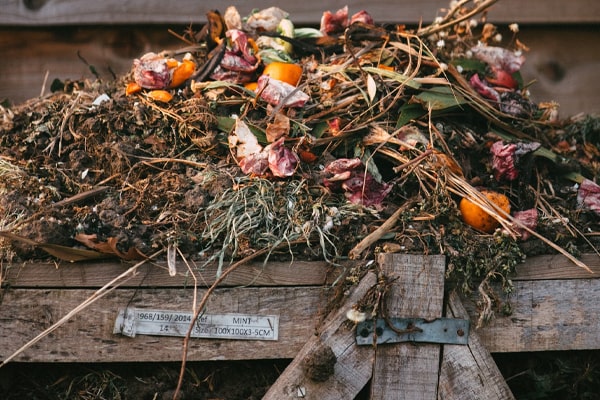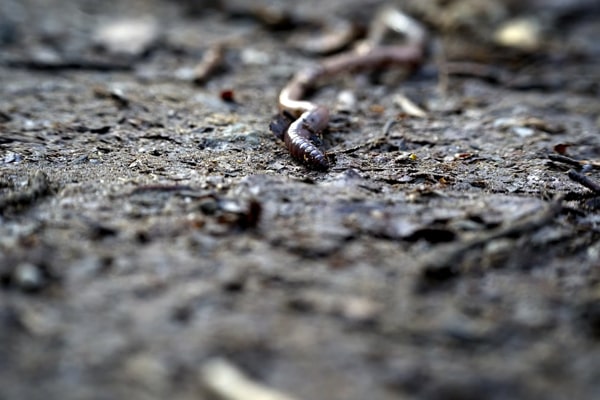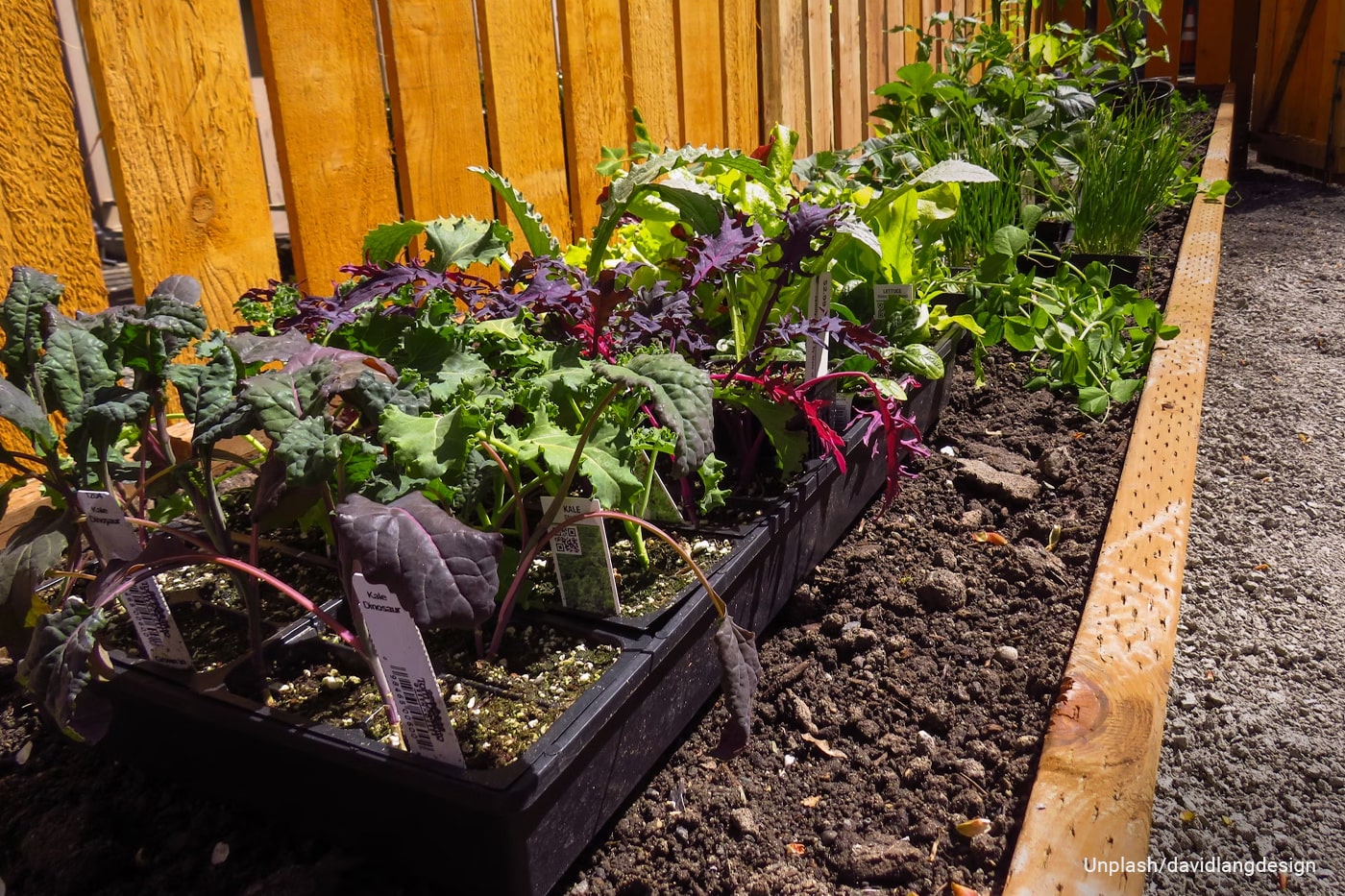Don’t wait for spring to prepare the garden and ensure a productive year. It’s important to amend the soil early in the spring season for many reasons. In this guide, let’s take a look at the many soil amendment materials that are best for garden soils.
Contents []
Amending Garden Soil in Early Spring
In the spring, soil undergoes changes that impact its health and ability to support plant growth. The soil can become tired and depleted of nutrients during winter. Snow, sleet, harsh winds and dropping temperatures can compact the soil, making it hard for plant roots to spread out and get the nutrients they need.
By early spring, the soil is still hard to till. This makes it harder for plant roots to penetrate and access nutrients. Additionally, winter weather and microbial activity may have depleted essential nutrients in the soil. Because of these changes, soil often needs amendments in early spring to replenish nutrients and improve its structure.
Soil amendments are added to soil to enhance its fertility, drainage, and overall health. It helps:
- Increase organic matter in the soil
- Boost soil nutrients
- Improve soil texture
- Increase water retention of the soil
- Boost soil aeration
- Promote resilience in plants and prevent diseases
Adding amendments to the soil in early spring, like compost or manure, can give the soil a boost of nutrients. It also improves soil structure. By amending the soil, the soil structure becomes looser, easier for plants to take roots. It also helps air reach the roots, which is important for their health.
What is the Best Amendment for Garden Soil?
Garden soil is different from other soil types. It has to have the right texture and nutrients to support plant growth. These soil amendment materials are best for garden soil:
Compost

Compost is one of the best natural amendments for garden soil. It is made from organic materials like kitchen scraps, leaves, and grass clippings. These materials break down over time, creating a rich, dark substance that’s full of nutrients.
Compost is chemical-free, so it won’t harm the plants and the environment. It’s rich in nitrogen, phosphorus, and potassium – nutrients that help plants make strong roots, big leaves, and produce more fruits.
Apart from being rich in nutrients plants need to grow healthy, compost also improves soil structure. When added to the soil, it acts like a sponge, soaking up water and holding it for plants to use later. This is helpful, especially during dry spells when plants might not get enough water otherwise.
You can build a compost bin at home and use green and brown composting materials to make your own compost. This helps make full use of kitchen scraps and yard wastes that you would otherwise throw out.
Rotted Manure
Rotted manure is animal waste collected from farm animals like cows, horses, or chickens that have decomposed over time, becoming rich and crumbly. This nutrient-rich material provides plants with essential nutrients and improves soil structure.
Manure contains nitrogen, phosphorus, potassium, and other trace elements that plants need to grow healthy and strong. When you add rotted manure to your garden soil, you’re giving your plants a natural and long-lasting source of nourishment.
The crumbly texture of rotted manure helps aerate the soil and gives soil a looser, fluffier texture. This creates a healthier environment for plants to grow and thrive.
Adding rotted manure to garden soils helps create a balanced and fertile soil ecosystem, which is essential for healthy plant growth. It improves soil health and supports biodiversity.
Worm Castings

Worm castings or manure are collected from earthworms and added to the soil. The castings are rich in nitrogen, phosphorus, and potassium. These nutrients are released slowly over time, providing a steady supply to plants and promoting healthy growth.
One of the key benefits of worm castings is their ability to improve soil structure. They help to aerate the soil, allowing better water retention and drainage. This creates an optimal environment for root development and nutrient uptake by plants.
Worm castings also help feed the soil microbes. These beneficial garden critters help break down organic matter, making even more nutrients available to plants. So when you add worm castings to your garden, you’re not just feeding your plants; you’re also feeding the soil ecosystem.
You can build your own vermiculture at home by rearing earthworms and feeding them organic food wastes. You can also buy worm castings at your local garden supplies store. To use, simply spread the castings on the soil surface or mix them into the soil.
Compost Tea
Compost tea is different from regular compost because it’s made by soaking compost in water. This creates a liquid packed with nutrients and beneficial microbes, just like a healthy plant drink.
Just like regular compost, compost tea is teeming with nutrients plants need to grow healthy. It also boosts soil health. The tea is full of microbes that help break down organic matter in soil. This makes it easier for plants to absorb nutrients from the soil.
They also help fight off harmful bacteria and fungi, keeping your plants healthy and disease-free.
Making compost tea is easy, just soak a few scoops of compost in water and leave it to steep for a few days. Then, carefully strain out the solids and pour the liquid into a watering can. Pour all over garden beds and repeat as needed. Some garden stores also offer ready-made compost tea.
Biochar
Biochar is charcoal made from organic materials like wood, crop residue, or animal manure. Unlike regular charcoal, biochar is meant to improve soil texture and increase its water retention capabilities. It’s a great soil amendment for heavy or clay soils as well as soils prone to compaction.
Adding biochar to your garden helps improve soil structure by making it more porous. This means the soil can hold onto water and nutrients better. It also makes the soil texture fluffier and easier to work with.
Once mixed in with soil, biochar acts like a sponge, soaking up essential nutrients like nitrogen, phosphorus, and potassium. This helps prevent nutrient runoff and ensures that your plants have a steady supply of food to grow healthy.
Using biochar in your garden is easy. You can simply mix it into the soil before planting or sprinkle it on the surface and water it in. Over time, as the biochar breaks down, it continues to benefit your soil and plants.
Leaf Mold
Leaf mold is the natural material from the decomposition of leaves over time. It’s made from shredded leaves that are left to break down, producing a rich, dark substance that can be mixed with garden soil to feed plants.
Leaf mold is packed with nutrients that plants need to grow. Apart from nitrogen and potassium, leaf mold also provides phosphorus, calcium, magnesium, and micronutrients like iron, manganese, and zinc. These nutrients are released as the leaves decompose, enriching the soil and feeding plant roots.
Leaf mold also helps improve soil structure, making hard, heavy, or dense soils easier to work with. For loose soils, leaf mold boosts water retention, so plants are less prone to stress caused by drought or infrequent watering.
You can produce your own leaf mold by collecting fallen leaves from your yard, shredding them up and packing them in a bin or pile to decompose. Within a few weeks, the leaves will turn to leaf mold and you can apply this to the garden beds the same way as compost.
What is the Difference Between Fertilizer and Soil Amendment?

Fertilizers and soil amendments are both used to improve soil quality and help plants grow, but they work in slightly different ways.
Fertilizer works like a food source for plants. It contains concentrated nutrients plants need to grow healthy and strong.
When you apply fertilizer to your garden, you’re giving your plants a boost of essential nutrients like nitrogen, phosphorus, and potassium, to help them grow faster, produce more flowers or fruits, and resist diseases better.
Fertilizers come in different forms, such as granules, liquids, or powders, and you can find different types designed for specific plants or stages of growth.
On the other hand, soil amendments are more like food for the soil itself. They’re materials that you add to the soil to improve its structure, texture, or fertility.
Soil amendments include things like compost, leaf mold, and vermiculite. ECOgardener offers soil amendments like the Powdered Seaweed Extract and the Granulated Humic Acid soil conditioners.
When you mix these materials into your soil, they help it hold onto water better, provide aeration for plant roots, and add essential nutrients over time as they break down.
Soil amendments also help create a healthy environment for beneficial microbes, which play a crucial role in breaking down organic matter and releasing nutrients for plants to use.
To sum up, fertilizers nourish the plants while soil amendments improve soil health. Both products support better plant health although they serve different purposes. Using a combination of fertilizer and soil amendments can help you create the best possible growing conditions for your plants, leading to healthier and more productive gardens.



